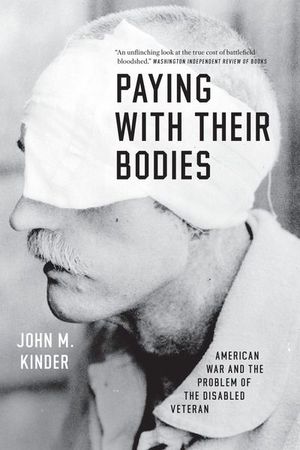Paying with Their Bodies
Published by The University of Chicago Press
This “valuable history” examines America’s complex and often conflicting relationship to wounded veterans and the lasting legacies of warfare (The Intercept).
America has grappled with the questions posed by injured veterans since its founding, and with particular force since the early twentieth century: What are the nation’s obligations to those who fight in its name? And when does war’s legacy of disability outweigh the nation’s interests at home and abroad?
Focusing in particular on the decades surrounding World War I, John M. Kinder argues that disabled veterans have long been at the center of two competing visions of American war: one that highlights the relative safety of US military intervention overseas; the other indelibly associating American war with injury, mutilation, and suffering.
Kinder shows that when we bring disabled veterans into the foreground of history, the narrative of American war over the last century takes a very different shape. War can no longer be seen as a discrete experience, easily left behind; rather, its human legacies are felt for decades.
America has grappled with the questions posed by injured veterans since its founding, and with particular force since the early twentieth century: What are the nation’s obligations to those who fight in its name? And when does war’s legacy of disability outweigh the nation’s interests at home and abroad?
Focusing in particular on the decades surrounding World War I, John M. Kinder argues that disabled veterans have long been at the center of two competing visions of American war: one that highlights the relative safety of US military intervention overseas; the other indelibly associating American war with injury, mutilation, and suffering.
Kinder shows that when we bring disabled veterans into the foreground of history, the narrative of American war over the last century takes a very different shape. War can no longer be seen as a discrete experience, easily left behind; rather, its human legacies are felt for decades.
BUY NOW FROM
COMMUNITY REVIEWS

